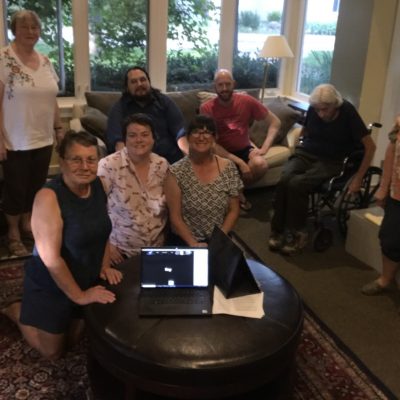
Recording Library - Consensus
Consensus is the most common governance method for cohousing communities. The basics are pretty simple, doing it well takes study and practice. These sessions will get groups started on the right track and help them adjust when things are not going as smoothly as they would like.
Consensus is the most popular choice in community decision-making, but that doesn’t mean it’s easy. In this session I’ll walk through where the hard spots are and what you can do about it.
There is a good bit of complexity in collaborative decision-making. This session will review many elements to consider when deciding who will make decisions and how those decisions will be made using a tool Karen calls “Decision Bingo”. Before you watch this session you might want to print this bingo card and bring your dry beans or paperclips for markers. This is going to be fun!
How to determine what needs to be discussed at plenary, and then to delegate well to avoid frustration and burn out.
Doing consensus well requires proficiency in two related areas: the structures of consensus decision making and the culture of consensus. Many structures will work if the the culture is solid. The reverse, however, is not the case. Even with very strong structures, you are likely to have problems if the competitive culture we have been taught prevails over the collaborative culture of consensus.
Remember your guiding documents? Do they need to be updated or reviewed? Are they dusty or are they living, breathing documents? Have some ideas of what could use some changes, not sure where to start? Let’s get together to workshop some practical ways and ideas together!
Community and connection are reliably the most significant goals of any cohousing community, yet support for community relationships generally makes up less than 1% of the development budget. In this session we’ll talk about how and when to use that budget to most effectively build the communication, conflict and consensus skills your community needs.
Working with emotions isn’t optional. The only decision is whether we will have a plan for how to deal with them when they show up. Most often when support is needed we are working with fear or anger. In this WebChat Laird explains how to bridge into the experience of the person in distress by matching their energy and hearing their perspective.

